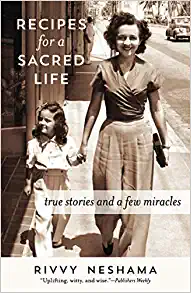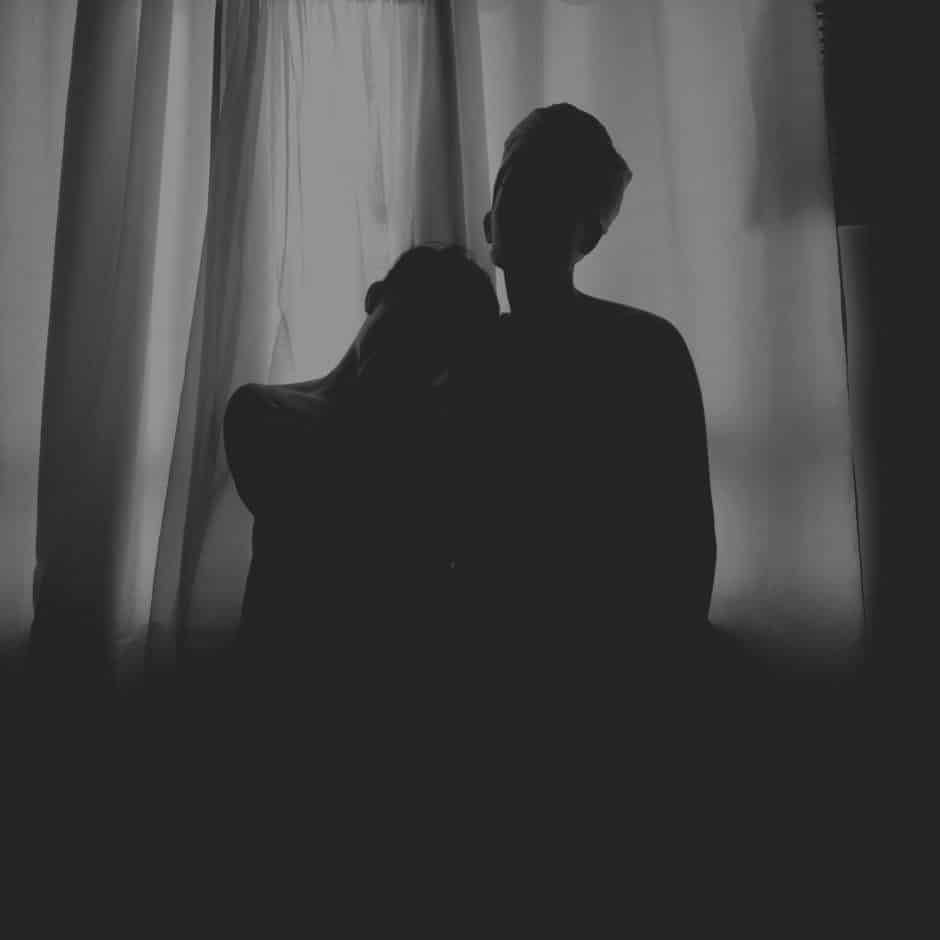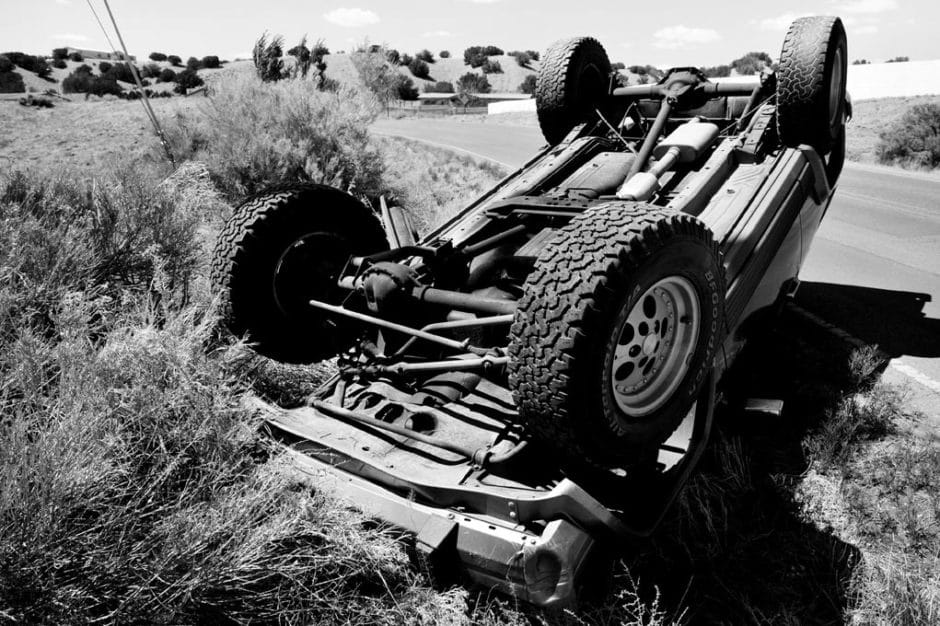“How can I help you today?”, she asked, her hands on her hips, as she looked at the guy in front of the counter. He was still looking at the menu, trying to decide what to get.
A minute later, she scratched her chin a couple of times. “It’s probably best if you let the person behind you come up, while you figure out what you want.”
He looked at her, his brows furrowed. “I’d like the grilled tilapia with mashed potatoes and buttered corn.”
“For here or to-go?”
“For here,” he said, putting the menu down.
“Fourteen dollars and seventy-three cents.”
It was a routine: Towards the end of her shift, almost every day, she hated her job, passionately. There was always some reason; yesterday, it was her manager Roy, who had refused her request for a pay raise. “I’ve been serving waffles and French toasts and mozzarella sticks to drunk customers for two years now. Don’t you think I deserve a bit of a raise?”
“Not yet,” he had replied.
Today, it was Rita, who had bumped her elbow into her stomach, as they were frying poblano peppers and didn’t apologize loud enough for everyone to hear it. “I want you to say it out loud, ok? I want everyone to know how clumsy you are,” she had shouted at Rita.
“Alright, I’m sorry,” Rita said, as she walked away from the kitchen.
“I don’t know how idiots like that get hired. This place needs a new manager, you know?”, she said to the rest of the cooks, who weren’t paying much attention anyway. Speaking of managers, she thought, who the hell are they to tell me not to put my hands on my hips when I’m at the counter? What’s next? They’ll want me to cut my hair shorter?
~
It was around five pm when she walked out of Ihop Express. Her car was parked a couple of blocks away. She was carrying her box of free dinner in one hand while texting her boyfriend Tony, with the other. He was supposed to buy her a 14k gold bracelet for her birthday, which was coming up in three days. “I’m so freaking excited about it! Is it beaded? Will you be coming to my place? Do you…”. Her texting was interrupted by a guy peeking out of a tent on the sidewalk.
“Got a couple of bucks?” he asked, his graying old beard covering almost the entirety of his face.
She put her phone in her pocket and just stood there, shocked that she had never seen this tent before.
“I don’t have any cash on me, but I got some roasted turkey with rice and potatoes. Would you like that?”
“I’ll take anything. Thanks.”
She handed him the box and moved on, phone in her hand again. “Do you know what time you’ll be there?”
She got in her car and started driving home. The seat belt alarm was beeping, but she didn’t care. She had Beyonce and Jay Z singing ‘Crazy in Love’ on her Pandora station and was tapping her right hand on the dashboard to the music. Her phone beeped. It was a text from Tony. “I don’t think I can buy you a gift. Just got laid off today.”
She picked up the phone with her right hand, the other hand trying to keep the wheel straight as she drove on cruise control on the highway. “WTF? You got laid off from your sixteen-dollar-an-hour FedEx job? That’s got nothing to do with my gift! You promised you’d buy me that bracelet a month ago.” A car next to her honked. Apparently, she had been swerving into their lane. She honked back at them, while continuing to type. “You had better show up at my home with my gift. Or else…”
She put the phone down. The speed limit was sixty-five; she was going around eighty. She pressed hard on the gas pedal and sped up. “That son of a bitch. How dare he think he could just take back his promise? I’d never do that to him!” She turned the music up. “Crazy in hate!”
The car in front seemed to be going too slow for her. She honked at them before cutting through two lanes and winding her way ahead. It was her phone beeping again. “So, you don’t care at all that I got laid off? All you care about is your fricking bracelet, Lena?”
She threw the phone away and floored the gas pedal. She almost hit the car in front, so she veered to the right. Later, when she’d think about it, she couldn’t remember the exact sequence of events. But she knew she was going ninety when she hit the car to her right, trying to pass the car in front of her. Her chest jolted forward and hit the wheel. She looked at her right-side mirror: it was gone. She looked in the rearview mirror: the car she had hit was pulled over, its driver’s side door and the front bumper bearing deep dents. Her breathing was rushed and sweat was pouring down her face. She slowed down, trying to find her phone so she could call Tony.
The phone was on the floor, on the passenger side. She pulled over and took a sip of water, laying her head back, her chest heaving wildly. She looked in the rearview mirror and the car she had hit was catching up to her.
The water bottle hit the floor as she sped up, cutting through lanes. She could see the other car following her. She was hoping to get far enough away from it so they couldn’t get her license plate number.
~
By the time she got home, it was dark and the whole thing seemed like a blur.
She was taking her shoes off near the door, when her mom rushed up to her and started talking about Sue, Lena’s aunt. “You won’t believe what Sue told me today about her boyfriend. He’s been cheating on her for years. And the crazy thing is…”
“Mom, leave me alone, would you? Where’s Danny?”
“He’s in his room, doing what he always does – playing that stupid video game. But listen, aunt Sue’s really in a tough spot right now.”
She went into Danny’s room and locked the door shut, as her mom stood outside, still talking about Sue.
“Hey sweetie, how was your day?”, she said, as she sat next to him on the bed.
He looked up briefly, before continuing with the Minecraft game on his phone.
“Talk to me, honey.” She picked him up and sat him down in her lap, running her fingers through his hair, her chin resting on his head. “Do you love mommy? She almost died today. And she almost killed…never mind.”
“Mom, I’m so close to winning this game. Just let me play.”
“Alright, just move over, so I can lie down next to you.”
He grunted and moved his eight-year-old-self to the other side of the bed, still riveted by his phone.
She tried replaying the accident in her mind, but it seemed unreal. Surely, it didn’t happen; it was just a nightmare. Of course, her car was fine. Well, maybe it did happen? But what was certain was that there was no way the other driver got her license plate.
She turned around, snuggled up to Danny and pulled a blanket over them. After he had been begging for months, she had finally relented and bought him a new phone almost a year ago, so he could enjoy his games more. She was still making monthly payments on it. Screw that fricking Roy, she silently cursed. Can’t even give me a two-dollar-an-hour-raise? Who the hell does he think he is…Ihop CEO?
She didn’t know what time it was when she got up in the middle of the night and texted Tony: “Sorry that you got laid off.”
~
She was at work a couple of days later, at the counter taking an order, when her phone vibrated in her pocket. Unlike other employees, she had always refused to silence it. “I’m putting it on vibrate; that’s good enough”, she’d told Roy.
Later, while taking a break in her car, she checked her voicemail. It was what she was dreading: a call from an insurance company asking to speak to her about the accident. Damn…how the hell did that dude get my license plate, was the first thought that came to her mind.
She ran into the kitchen. Rita was making buttermilk pancakes.
“Hey Rita, ever been in a car accident?”
“Nope”, she answered, without looking up from her skillet.
“You know anything about insurance claims?”
“Nope.”
“Well, that’s mighty nice of you,” Lena said, as she walked out to her car.
She lit up a cigarette and started googling ‘at-fault-driver in car accident’. Every article she read made her more anxious: ‘at-fault-driver liable for injuries and payments’; ‘accident will go on driver’s record’; ‘other driver may file a lawsuit if you don’t cooperate with their insurance company’.
She threw the phone down and turned up the music. It was Beyonce again. She rolled down the windows and spat in the direction of the Ihop.
~
The calls came in every couple of days, the same woman, saying the same thing: “We need you to contact us. Based on the claim filed by our insured client, you’re legally required to share information about the accident and have a duty to cooperate.”
She was having lunch with her mom and Danny one Saturday, when her phone rang. She could tell from the number that it was the insurance folks.
“Why’s your phone been ringing so much these days?” her mom asked.
“Damned spam callers.”
“I hate those people. I wish the same for them that I do for Sue’s husband’s killer: they ought to rot in hell.”
“Mom, I’ve heard that story a billion times. Please, just stop.”
“Hey Danny, you want to hear a crazy story?”
Danny was busy with his phone, as usual. He looked up at grandma. “No nannie, I’m busy.”
“Ok, one night, a long long time ago, your grandma’s sister’s husband was driving home from work, when a drunk driver hit his car and killed him. Not only that, he drove away from the scene and the cops never found out who it was. If you ask my sister what bothers her more today – losing her husband or not finding and jailing the guy who killed her husband – she’ll say it’s the latter. I tell you, there are some real crazy psychopaths in this world. Don’t you think so, Lena?”
Lena got up and went to the kitchen sink with her plate. “I don’t need to listen to this crap anymore.”
~
She was driving to work on the highway, when she looked out the window. She was around the same spot where she had hit the other car. Her hands started trembling and for some reason, the memory of her aunt Sue screaming in her bedroom, yelling “I’m going to find you, you bastard! I’m going to find you and you’re going straight to hell!” and pounding her fists on the walls of her room, came back again in her mind. Even as a fourteen-year-old, it was something she knew she wouldn’t forget – watching her aunt cry and yell at the same time – but it had been a while since she’d thought about it.
As she was walking up to the restaurant, her phone rang. It was the insurance company. She put it back in her pocket, before taking it out and answering it. “Hello.”
“Can I speak with Lena Carter?”
She hung up, squeezing the phone with her fist and put it on silent mode for the rest of her workday.
~
It was one of those mid-autumn days that were gradually becoming rare: it was warm, sunny and dry. They were sitting in her car, next to a park, watching the maple leaves drift down onto the ground.
“What happened to your door and mirror?”, Tony asked.
“I don’t want to talk about it,” she replied, smoking her cigarette. She passed it to him.
“No thanks,” he said, looking out the window, his hand resting on the dented door. The passenger-side mirror was gone. Over the past decade, sitting in the passenger seat, he was used to seeing his face in the mirror and it felt strange now to not see himself.
“You ever worry about how you’re going to pay your rent?”, she asked. “Got enough savings from your former job to get you through a few months?”
“I don’t want to talk about it.”
“Fair enough, you funny guy.”
She took a last puff before tossing the cigarette out the window. “Tell you what: I’ll share what happened to my car and then you’ve got to answer my question, ok?”
He nodded, smiling.
“I was drunk and drove into a tree by the side of the road. Simple as that.”
“Really?! When did this happen and why didn’t you tell me earlier?”
“Well…there was that tiny little thing about you not keeping up your promises and pissing me off…remember that?”
“And there was that tiny little unexpected thing about me losing my job and not having any income…remember that?”
“It doesn’t fricking matter, Tony! You made a promise. A promise is something you stand by, regardless of what life throws at you.”
He clenched his fist and punched it into the car door. “Oh really? Well, what about the promise you made to let me move in with you…when was that…when Danny was like three?”
“Screw it. This isn’t going anywhere.”
She got out and shut the door hard enough to make Tony jump up in his seat.
“You can’t just walk away from this, you know!”, he shouted.
“Oh yes, I can. I can do whatever the hell I want. I can choose to pick up the phone or not,” she yelled as she pointed her phone at him. “I can choose to not have an alcoholic boyfriend move in with his son and raise him to be a jobless drunk like his dad. Those are all choices I can make. You get that?”
He started walking away from her, punching his fists in the warm autumn breeze. He was gone too far to hear her screaming “Stop, come back! I need you!”
~
She kissed Danny goodnight and turned off the lights. She closed the door and walked out, before returning and blowing a kiss in his direction.
Her mom was at the dining table reading the newspaper. Lena filled up a glass of water and sat down next to her.
“What’s up in the news, Mom?”
“Same old stuff I’ve been reading for decades. Nasty people doing mean things to nice folks like us. Over and over again. It never changes.”
“Mom, how does aunt Sue really feel about uncle Bill’s accident?”
Her mom put the paper down and took off her glasses. “I thought you didn’t want to talk about that?”
“Just answer my question mom, for once…would you?”
“It’s what I told your kiddo. She’s never going to let go of that sense of injustice. I’ve told her that it’s harmful to keep all that anger and resentment inside her, but she just can’t get it out of her mind. Poor thing.”
“Do you think she’d feel better if the other person owned up to their fault?”
“Hell yeah. She’s been wanting that for decades. Both she and I know that the other person’s going to pay a price for their actions, at some point in their life. You don’t just get away with that kind of stuff.”
Lena ran her fingers around the glass, moving them up and down and in circles. It was late – eleven pm – and she had an early morning shift the next day. Her mom had put on her glasses and resumed reading the paper.
Lena got up and headed to her bedroom.
“Goodnight, dear,” her mom said, as she closed the door shut.
Danny was sound asleep. She put an extra blanket over him and closed the blinds, before lying down next to him. It had been a tiring day and it didn’t take long for her to fall asleep.
It started sometime in the night: the pounding on the walls and the yelling: ‘You bastard, I’m going to find you!’. She sat up and ran to the wall, putting her ears next to it. ‘You’re going to hell!’. She fled from the wall and reached for her phone. She dialed the insurance company and got to their automated message. ‘Press 1 to leave a voicemail for your claims representative’. She hung up, clutching the phone tightly in her quivering hands.
No, she couldn’t do it. There was no way she could handle her premiums going up and have an at-fault accident on her driving record.
Plus, it wasn’t really my fault, she reminded herself. If only Tony had kept up his promise, none of this would’ve happened.
‘You have a duty to cooperate and are legally required to share information about the accident’. ‘The other person’s going to pay a price for their actions’. ‘Nice folks like us.’
Her arms and legs were shaking as sweat dribbled down her face. She had a sip of water before turning around to face Danny. “I love you, Danny. You’re the best,” she whispered silently, as she rubbed her hands over his blanket.
The pounding and yelling continued through the night.
~
Her eyes were droopy from not sleeping well the night before, and the loud rock music they were playing was only making her fuzzier. She hated her eight-am Tuesday shifts.
“What do you want?”, she asked the guy in front of her.
“Umm…I’d like a turkey sandwich, but on gluten-free bread. Also, can you make it with mozzarella cheese instead of cheddar? And oh, no fries, extra salad. That’s it,” he said, as he put the menu down.
She started typing the order into the computer. Somewhere in the middle, she stopped. Aunt Sue was screaming and pounding her fists on the wall. Tony was not keeping up his promise. Her car’s mirror was shattered as she rammed into the car next to her. Her body was full of anxiety about her insurance premiums going up and a lawsuit being filed by the other driver. There weren’t enough nasty folks like her in this world…oops…she meant, there weren’t enough nice folks like her in this world…her heart was pounding as her mind reeled through it all.
“What the hell are you asking for? Can’t you just keep it simple? No fries, extra salad? Who the hell do you think you are?”
“What? What do you mean?”
“I know exactly what I mean,” she said, pounding her fists on the table. “You’re being a royal prick!”
The guy moved closer to her, his hands pushing on hers. “Say that again?”
Roy, the manager, came running in. “Hold on, this has got to stop. Lena, I think you need a break.” He took her by her hands and walked her to the kitchen.
~
The rain wouldn’t let up. It was hard to see beyond the wet windshield. They were parked at the same spot, next to the same park they were at a month ago.
Faith Hill was playing ‘This Kiss’ on Pandora, as they passed along a can of Michelob’s back and forth.
“I fricking love this song…don’t you? It reminds me of that night we went dancing at that Olympian pub…remember how drunk you were? You mistook this other woman for me – just because she was also a brunette – and started dancing with her, holding her hands. I had to come pull you away! Oh my god…”
“Oh yeah, baby…I remember that. Those were the days. I even had a job then!”
“Hey, did I tell you that we both have a lot more in common now?”
“What do you mean?” he asked, as he took another sip of the beer.
“I also got laid off. Well, I got fired. But I like to think of it as a layoff. You know what I mean?”
“You did?! When?”
“Doesn’t matter. Screw jobs…who needs them? Losers who don’t know what to do with their lives. Screw insurance, screw lawsuits, screw…everything!”
“I don’t know about the last three, but amen! Here’s to screwing,” he laughed, as he opened another can of beer.
She was tapping her feet and swinging her body back and forth. ‘This Kiss, this kiss…it’s the way you love me! It’s a…’
Her phone rang. It was the insurance company.
She stopped abruptly and sank into the seat, closing her eyes and bringing her legs up to her chest. It kept ringing. She picked it up and stared at the screen, her finger hovering near the green ‘accept’ button.
Kunal Mehra is a multimedia artist who likes photography, filmmaking, writing and hiking. He grew up in India and has been living in Portland, OR, since 2002. His writing has been published by the Press Pause Press, The Mindful Word and ‘Academy of heart and mind’ magazines, amongst others.
***
If you liked today’s piece, check this out:
“Exquisite storytelling. . . . Written in the spirit of Elizabeth Gilbert or Anne Lamott, Neshama’s stories (and a few miracles) are uplifting, witty, and wise.”—Publishers Weekly
***












